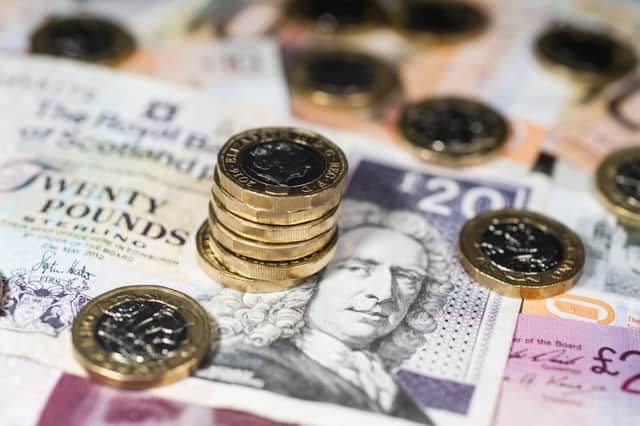Inflation may have '˜peaked' after first fall since last June


The consumer prices index (CPI) eased to 3 per cent in December, the Office for National Statistics said yesterday, which was down from 3.1 per cent in November when inflation reached its highest level since March 2012.
City economists said they believed that inflation will now head back towards the Bank of England’s 2 per cent mandated target as we go through 2018.
Advertisement
Hide AdAdvertisement
Hide AdHowever, ONS senior statistician James Tucker said it was “too early to say” whether December’s fall was the start of a trend. The ONS said the drop was largely caused by falling air fares, allied to the declining price of clothes and toys in the run-up to Christmas.
Howard Archer, chief economic adviser to the EY Item Club, said he expected inflation to ease further.
“Admittedly, the rise in Brent oil prices to a three-year high of $70 a barrel in mid-January increases the risk that inflation could be sticky in the near term,” Archer said.
“However, this should be at least partly countered by sterling rising to its highest level against the dollar since the June 2016 Brexit vote.
“Specifically, we expect consumer price inflation to fall back to 2.1 per cent by the end of 2018.”
However, Yael Selfin, chief economist at KPMG UK, said that while the inflation fall will provide a “small relief” to households, recovering oil prices could keep everyday costs higher.
She said: “A rise in oil prices together with the lagged effect of sterling’s earlier falls, which is expected to take some time before being fully passed on to consumers, will continue to provide upward pressure on prices.”
Economists said the slowdown of inflation eased the pressure on the Bank of England to hike interest rates beyond 0.5 per cent in the coming months.
Advertisement
Hide AdAdvertisement
Hide AdSamuel Tombs, chief UK economist at Pantheon Macroeconomics, said: “The continued weakness of underlying price pressures means that the (monetary policy committee) has little need to rush the next rate hike.”
Sterling slipped against the dollar following the announcement, falling 0.2 per cent to $1.37. Against the euro, the pound was broadly flat at €1.12.
Food and non-alcoholic drinks also recorded smaller monthly growth of 0.6 per cent, down from 0.8 per cent in December 2016. The smaller expansion was partly driven by a fall in the cost of vegetables, including premium crisps.
In contrast, tobacco was applying upward pressure in response to tax increases announced in the autumn Budget. Costs lifted by 2.7 per cent month-on-month in December. In the eurozone, inflation was just 1.4 per cent in December.